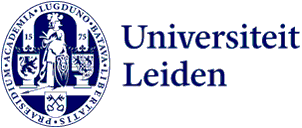Find Funding
To find funding, you first need to define your goal. Do you need to fund your own salary? Go abroad? Start up a collaboration? Buy equipment or do field work? Next, find a match between your goal and the many funding opportunities.
Individual research grants
Individual research grants usually provide funding for curiosity-driven, bottom-up topics. These grants are made based on the excellence of both the researcher and the research. They vary from small travel and visiting grants to large grants that cover the salaries and material budget for a whole research group.
Prizes
Prizes and awards are given out to acknowledge demonstrated research achievements and impact. Sometimes self-nomination is possible. Prizes are cash payouts. They can be small or substantial (millions of euros).
Collaborative grants
Collaborative research project grants require cooperation between two or more applicants and can be intended for top-down thematic or fixed topics but may also offer opportunities for curiosity driven research. Collaborative research projects can focus on fundamental research, but can also have a more applied focus, having strong links to, or partly incorporating the making of research results available for economic development and/or societal benefit.
Potential partners include other research organisations, governmental bodies (e.g., cities, provinces, government ministries), NGOs and museums. Collaborative research project grants can vary in size and complexity (from bilateral collaborations to pan-European consortia). Collaborative grants can be interesting for all career stages. In some cases, co-funding is required.
Research training grants
These focus on the personal career development of individuals (e.g., postdocs or visiting fellows) or groups. An example of a group would be a consortium of researchers applying to set up a program consisting of multiple individual grant opportunities for individuals (e.g., PhD networks).
Contract research
Research for companies is very narrowly defined. It involves research laid out in a specific project description, with exact deliverables set by the company. Furthermore, the contract usually specifies that the company owns the results of the research. For more information, please contact LURIS Business Development.
Education funding
The grants discussed above are research grants. If you are interested in grants for education projects such as Erasmus+ and Comenius, please visit the LU website on education grants.
Support needed?
Would you like to have more information on the different types of research grants and which would fit your research project and career please contact your local grant advisor.
Projects at LIACS: Overview of grant writing and project execution process
1. Initiation
Do you have an idea for a proposal, have you seen an interesting grant opportunity or do want to apply for a grant? Always contact the Project Office as soon as possible. They will advise and support you with everything concerning your proposal. In the pre-proposal stage, they can:
- Discuss possible funding programs that could fit your idea
- Help you plan your application
- Help you develop the proposal
- Bring in the relevant experts for further help
When you send in a request, you will get an answer within one week.
Please always contact the Project Office as soon as possible. If a request comes in too late, there might be a chance that they cannot help you in time.
Compiling the proposal
In the proposal stage, there is a lot to think about. The Project Office is there to help you. They will:
- Check the deadlines of the call
- Check the requirements of the call, both academic and budgetary
- Advise on consortium formation in case of larger grants
- Prepare the required documents
- Help with IP and legal matters
- Advise on data management
- Help you develop the proposal and review it
- Help with the signature of documents (please note: a minimum of 6 weeks before the project deadline is needed)
Budgets and financial matters
The Project Office will also help you with all the financial matters, like the preparation of budgets. The Financial Administration can make the final budget for you.
Do note however that making a good budget takes time! A minimum of 6 weeks before the project deadline is needed to prepare a budget.
Deadlines to remember
A minimum of 6 weeks before the deadline is needed for:
- Proposal review
- Permission/Signatures
- Budget support
2. Awarding/Rejection
When you are informed about the final result of the grant application, please contact the Project Office! They always want to be informed about the result, also if your application is rejected.
Awarding
If your grant is awarded:
- Inform the Project Office, Aske Plaat and the Institute Management. Please also contact the Communication Officer to gain attention for your project.
- The Project Office will help you with the things that need to be arranged, such as IP and legal matters and a Consortium Agreement.
- The Financial Administration will set up finances and arrange a SAP number.
- For the procedures to hire personnel, contact the Institute Management.
3. Execution
During your project, please think of the following:
- Keep track of milestones, deliverables
- Intermediate reporting
- Financial management: The Financial Administration can prepare intermediate financial reports and guide with financial planning
- For major milestones: contact the communications officer if you need help with PR.
4. Closure
When closing a project, you need to think about:
- Final report
- Closing of finances
For these steps, please contact PO@liacs.leidenuniv.nl and the Financial Administration.
